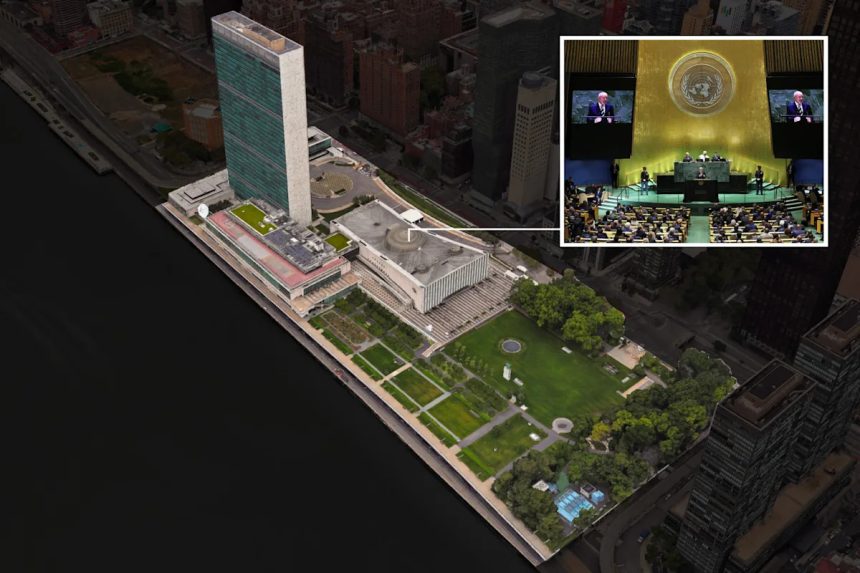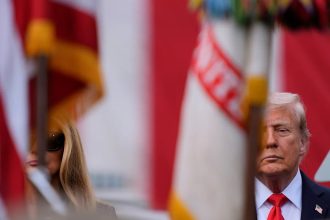Every September, leaders from around the world gather at the United Nations in New York to debate and pass resolutions on the biggest issues facing the planet.
The UN General Assembly (UNGA) opens every year on the second Tuesday in September. This year, it began on September 9, when the incoming president took office, the agenda was adopted, and organisational work began. In the days since, delegates have held meetings, set up committees, and prepared for the high-level debate.
On September 23, the high-level General Debate begins, the key event where world leaders deliver speeches before the UNGA. Each speech is recorded, and the audio is posted on the UN website. Statements are expected to observe a voluntary 15-minute time limit, though many run longer.
The debate runs in two daily sessions: a morning session from 9am to 2:45pm local time (13:00 GMT-18:45 GMT), followed by a short lunch break, and then an afternoon session from 3pm to 9pm (19:00 GMT-01:00 GMT). However, meetings continue until all scheduled speakers have spoken.
INTERACTIVE – What happens at the General Assembly 2025-1758611818
Who will speak at the UNGA?
More than 150 heads of state and government will take the podium at the UNGA. All member states are invited to speak, with the session called to order by the UNGA president, currently Annalena Baerbock, a former German foreign minister.
By tradition, Brazil is always the first country to speak, a practice that began in 1955 when it volunteered to open the debate. The United States, as the host country, usually speaks second. This year, that sets up an interesting dynamic: Brazilian President Luiz Inacio Lula da Silva, who is scheduled to speak on his country’s behalf, has been locked in a tense relationship with US President Donald Trump, who will speak right after him. Trump has accused Lula’s government of political vindictiveness against the US president’s ally, Jair Bolsonaro, the former Brazilian president who was convicted last week of plotting a coup after losing the 2023 election to Lula.

UNGA President Annalena Baerbock addresses its 80th session at the UN headquarters at the start of the high-level week on September 22, 2025 [Angelina Katsanis/AP Photo]
For all other member states, the speaking order is determined by the level of representation (head of state, head of government, or minister), expressed preferences, and geographic balance.
The Holy See (Vatican City), the State of Palestine, and the European Union are also invited to participate, with their speaking slots set according to their representation.
The debate continues through Saturday, September 27, and resumes on Monday, September 29, as no sessions are held on Sunday.
The daily schedule is published on the UN website, and sessions are livestreamed on the UN’s official channels. The speakers for day one are shown in the graphic below.

INTERACTIVE – UNGA UN Schedule day 1 speakers September 23 schedule-1758618966
Where is the UNGA held?
The UNGA is held at the UN headquarters, which is located along the East River in Manhattan, New York City.
The complex, built between 1949 and 1952, is owned by the UN and is considered international territory. It serves as the main hub for international diplomacy.

INTERACTIVE – Where is the UN Headquarters located New York-1758611834
The campus comprises:
-
The Secretariat – The central hub of the UN’s administrative work.
-
The General Assembly – The hall has a seating capacity of 1,800.
-
The Conference Building – This houses the Security Council (UNSC), Trusteeship Council, and Economic and Social Council.
-
Dag Hammarskjold Library – Named after the second UN secretary-general (1953-61).
-
North Lawn – Features sculptures and artwork from member states.
The complex also includes a parking garage building and a south annex building, both constructed in the 1980s to accommodate the UN’s expanding staff and operations.
The UNGA has not always been held in New York. The first six UNGA sessions took place in different cities, beginning in London and later including Paris. Since 1952, however, nearly all sessions have been held at the UN headquarters in New York.

INTERACTIVE – Where is the General Assembly held-1758611828
Some notable exceptions include 1988, when the UNGA met in Geneva, Switzerland, after the US denied a visa to Palestinian leader Yasser Arafat.
This year, Palestinian representatives were again denied a visa by the US, so they will participate virtually.
The Trump administration’s decision has drawn widespread criticism, with the UN asserting that it violates the Host Country Agreement, which obligates the US to allow heads of state and government to travel to New York for annual meetings and other diplomatic business, with full diplomatic immunity.
In 2020, the UNGA was held virtually for the first time due to the COVID-19 pandemic.
What is on the agenda this year?
The 80th UNGA has the theme “Better Together: 80 years and more for peace, development and human rights”.
This year, Palestine’s participation is a major focus, alongside climate change, artificial intelligence, global food crises and conflicts around the world, among other major issues.
On Monday, France, Andorra, Belgium, Luxembourg, Malta, and Monaco announced their recognition of Palestinian statehood at a high-level summit in New York, co-convened by France and Saudi Arabia. Australia, Canada, Portugal, and the United Kingdom, which formally recognised Palestine a day earlier, also spoke at the meeting.
The State of Palestine is now recognised as a sovereign nation by 157 of the 193 UN member states, representing 81 percent of the international community.
These moves reflect a growing international trend towards recognising Palestinian statehood, even as efforts to grant it full UN membership remain blocked, specifically by the US, which has a long history of vetoing resolutions critical of Israel.

When did each nation join the UN?
The UN was established after World War II, growing from 51 members in 1945 to 193 today, with two non-member observers: Palestine and the Holy See (Vatican City).
The aim of the UN was to prevent future conflicts, promote international peace and security, foster cooperation among nations, protect human rights, and support social and economic development worldwide — goals that many critics say it is increasingly failing to deliver on.
Use the table below to search for when each country joined the UN.

How is a country admitted into the UN?
Being a UN member means that a country can participate in UN decisions, adhere to the UN Charter, and access UN programmes and support.
In the UNGA, the rule is: one country, one vote for the delegations that come from every member state.
Admission to the UN is not the same as diplomatic recognition by other countries.

INTERACTIVE – How is a country admitted into the UN-1758611808
To become a full UN member, a country has to follow these steps:
-
The country applies to the UN secretary-general, declaring that it accepts the UN Charter and will fulfil its duties.
-
The UNSC, which comprises five permanent members (China, France, Russia, the UK, and the US) and 10 non-permanent members (rotated every two years), reviews the application. Admission requires at least nine affirmative votes and no vetoes from any permanent member.
-
If the UNSC recommends admission, the UNGA must approve it with a two-thirds majority.
Once approved, the country becomes a full UN member, gaining full rights and broader international recognition. Its flag is added to the UN headquarters, and it is entitled to participate fully in all UN activities, including voting in the UNGA.
How the US has used its veto to block full UN membership for Palestine
In 2012, the UNGA upgraded Palestine’s status from an observer entity to a non-member observer state.
This change did not make Palestine a full UN member, so it cannot vote on resolutions, but it can attend meetings and participate in debates.
On April 18, 2024, the US vetoed a widely supported resolution in the UNGA that would have granted Palestine full UN membership, blocking the upgrade despite broad international backing.

INTERACTIVE – US blocks Palestinian full UN membership-1758611813
The US has a long history of vetoing UNSC resolutions critical of Israel, having done so at least 50 times since joining the UN. This consistent use of the veto has often prevented measures addressing Israeli military actions, settlements, or the occupation of Palestinian land from being adopted.









